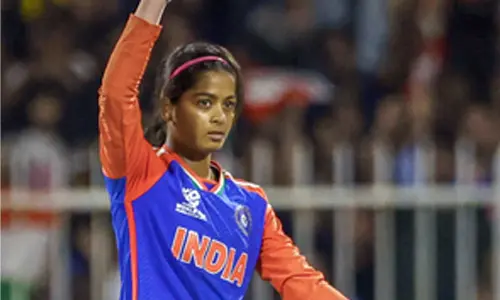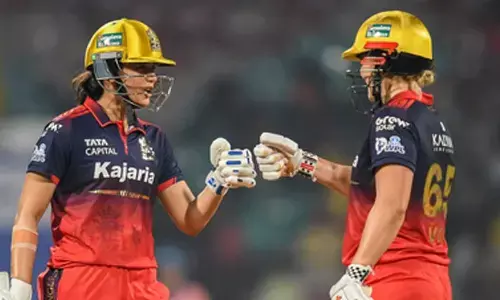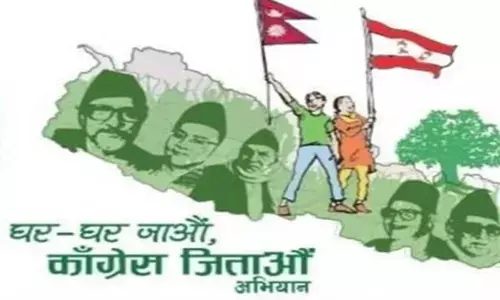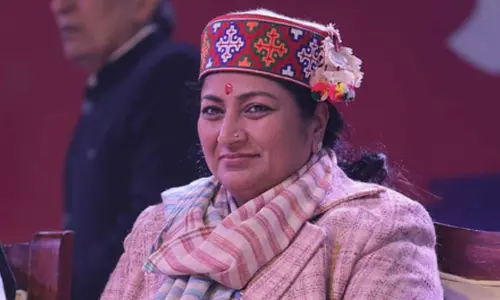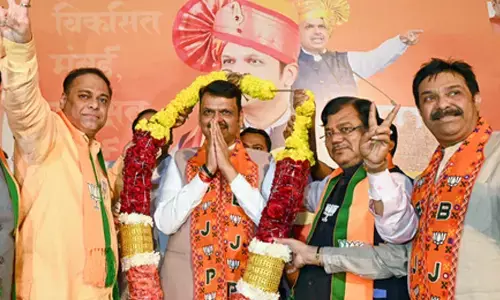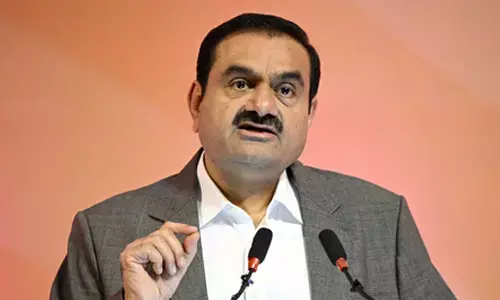Food security: Will it impact the masses?

With the passage of Food Security Bill in both Houses of parliament, the UPA has managed to get through another Bill of Rights—after the right to “information”, “employment”, “education”, “forest rights” to tribals, “identity” in the provision of UIDs which are being rolled out. And now it is “food”. These are rights which have been guaranteed by law.
Many politicians, of different hues, believe that the measure will hit the farmers adversely. And that it would only balloon the already large fiscal deficit, casting a longer shadow on an economy already strained and slowing down
.jpg) With the passage of Food Security Bill in both Houses of parliament, the UPA has managed to get through another Bill of Rights—after the right to “information”, “employment”, “education”, “forest rights” to tribals, “identity” in the provision of UIDs which are being rolled out. And now it is “food”. These are rights which have been guaranteed by law.
With the passage of Food Security Bill in both Houses of parliament, the UPA has managed to get through another Bill of Rights—after the right to “information”, “employment”, “education”, “forest rights” to tribals, “identity” in the provision of UIDs which are being rolled out. And now it is “food”. These are rights which have been guaranteed by law.
UPA-II has been known for its scams and for price rise, which has damaged the Government’s authority and credibility and the Congress is faced with the challenge of having to combat this widely prevalent perception today. And yet, it is also true that when history judges the UPA rule, it may also take into account the rights-based framework it has provided to the deprived amongst our citizenry, however inadequate that might be.
After all, 5 kgs of food grains per person a month is not very much to go on, and would add up to roughly 125 gms of grain per meal if there are two meals a day. So also is the case with MNREGA. It, after all, ensures only 100 days of employment to one family at the rate of Rs 100 a day, which means around Rs 800 per month for a family.
And yet there is such an outcry from certain sections of our society, who are reacting to it as if feeding the poor or giving them some livelihood, however low level, is a crime. It is as if these people are not part of India, and have no right to live with dignity like the rest of us do. The reaction to food security shows how much of a burial the principles of equity and justice have been given in our society.
Politicians have been savvier in their response. Even though the Opposition parties know that the Congress would encash this electorally, the issue is such that when the chips were down, they were not able to oppose it. They criticised the Bill in Parliament for not going far enough, but they did not even insist on a vote, for no party wanted to be seen to be voting against it.
The question, however, is a whether the measure is going to have the desired impact that the ruling party hopes for and it would be naïve to believe that this has not been done with elections in view. The voter, becoming increasingly sceptical about politicians, is more likely to be influenced by what she gets in hand than by promises. And the Food Security Act will take a year to roll out. This is the criticism that the Opposition leaders made—that given a year’s lead time, the Government did not have to resort to an ordinance just before the start of the monsoon session of Parliament. Of course, the Congress- ruled States will try and hasten the process but the non-Congress states, who would naturally not want to let the Congress take the credit, would take their time in identifying the beneficiaries.
The Congress probably did not want to leave the passage of the Bills so late in the day. After all, MNREGA, and the loan-waiver in UPA-I had come much earlier than poll time, and people had directly benefited from them by the time the elections came. The delay took place more because of the resistance within the UPA, with the Prime Minister being opposed to it initially, and many senior Congress politicians fired off the shoulders of Sharad Pawar who was more open about his reservations.
Many politicians, of different hues, and Pawar and Mulayam Singh Yadav and BJP leaders among them, believe that the measure will hit the farmers adversely. And that it would only balloon the already large fiscal deficit, casting a longer shadow on an economy already strained and slowing down. There is, however, another way of looking at things. Many experts believe that 67% of the population, which would get grain at a much cheaper rate, may spend money they had earlier been spending on buying grain at a higher rate, on other food items and this would help the farmers. With more money in their hands, they may also be able to buy some other goods which could give a boost to industrial production. Cheaper grain would also help offset the backbreaking load of rising prices for the poorer sections that are going to benefit.
It goes without saying that the devil is going to be in the detail; in how the Bill is implemented and whether meaningful steps are taken to reform the PDS system, which is a crying need. Many wanted greater nutritional content built into the law. Ideally, it would have been better had the Bill been passed a couple of years earlier.
.jpg)
Things began to move only when Sonia Gandhi started to throw her weight behind the Bill and food security has been an issue close to her heart. Implicit in her speech in the Lok Sabha, when she spoke with passion in its favour, was also a vision. She said the question was not about whether there was enough money for it; money had to be found for it. The question was not whether it could be done; it had to be done.
Visions are not contingent on what is possible or easy. They make possible what is difficult and that is what leadership is all about. India would not have got freedom if our freedom fighters had thrown up their hands in helplessness to say it was not viable and this could have legitimately been their response at various stages of the Independence Movement. As a backward, poor nation, with many religions, languages, races, ethnic groups, castes, we would not have dared to opt for parliamentary democracy as a system of governance if our founding fathers had thought about possibility or viability.








